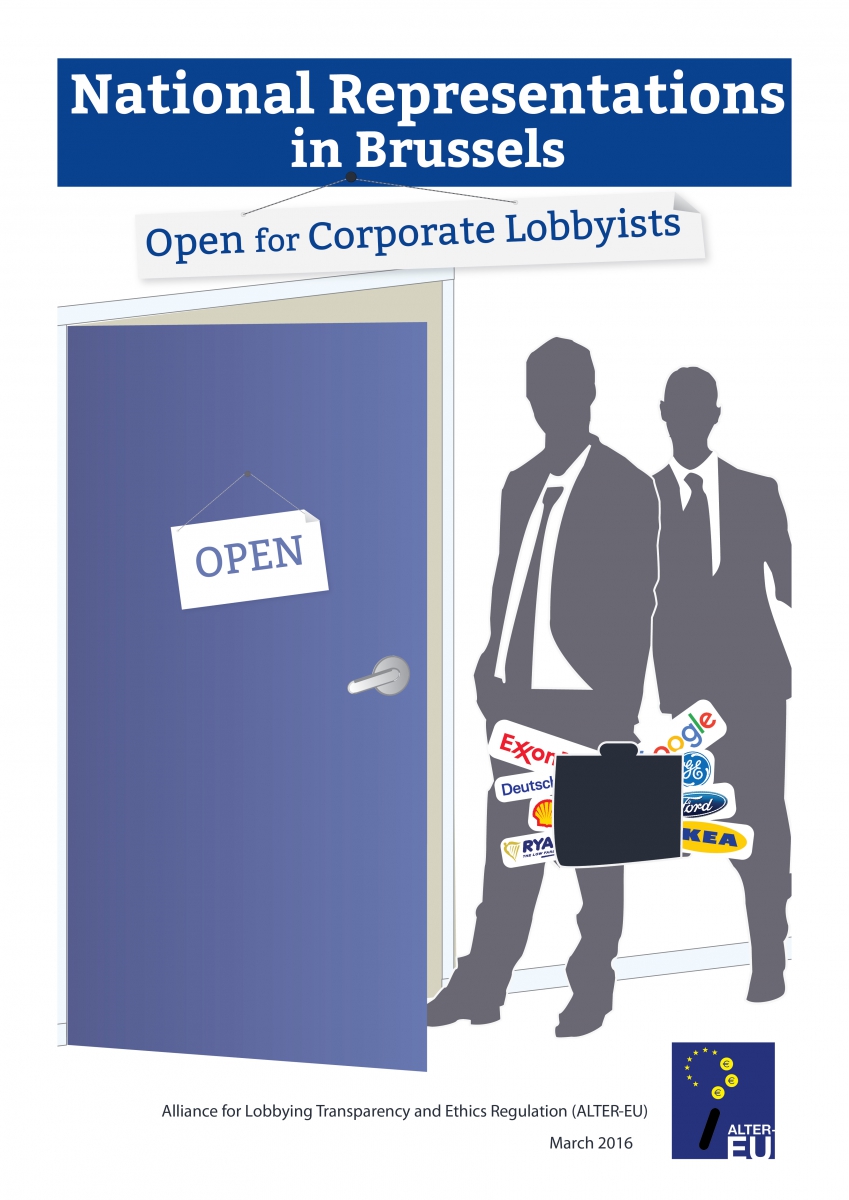
Permanent representations – the primary link between member states and the EU institutions – provide a key avenue for member states to influence policy and legislation at the EU level and have long been suspected of being a target for corporate lobbyists keen to get their message across.
In 2015, ALTER-EU submitted access to information requests to 17 EU member state permanent representations, asking for a list of meetings held with lobbyists in the previous 12 months. Only four governments (Ireland, Romania, the Netherlands, and Poland) were able to provide all or some information that related to our access to information request, despite the fact that all member states except Cyprus have national legislation governing the right of access to information. The data received from the Netherlands showed that corporate lobbyists regularly hold meetings with the permanent representation. The information received from Ireland, Romania, and Poland also enabled ALTER-EU to determine that many lobby meetings take place with permanent representations in Brussels and a majority are with corporate lobbyists, giving big businesses signifi cant access to promote corporate agendas.
Furthermore, the data showed that lobbyists are able to exploit a loophole in the EU transparency rules which enables them to lobby the permanent representations without being registered in the EU transparency register. Permanent representations are not covered by the EU lobbying transparency regime. Our figures show that 21 per cent of the meetings listed in the data released by the Dutch permanent representation were with lobbies unregistered with the EU transparency register at the time of the meeting; for the Romanian permanent representation, the figure was 20 per cent.
The data received from the Romanian, Polish, Dutch and Irish representations is available for scrutiny in a public spreadsheet. The research also illustrates an apparent complacency about lobbying, evidenced by the lack of monitoring and record-keeping by the permanent representatives about who lobbies them. This prevents public access to, and scrutiny of, information about the lobbying around EU decision-making processes. Six countries said they did not hold the information requested (Belgium, Denmark, Germany, Portugal, Spain, and Sweden). The Netherlands provided an ad hoc list of corporate lobbyists that it had met with, while making it clear that while this list had been informally maintained by an individual officer in the permanent representation, there is no official policy to record all lobby meetings.
Where such lists of lobby meetings do exist, ALTER-EU’s report reveals that other governments are prepared to deny access, as in the cases of the UK and Malta which refused to grant access to the information following an internal appeal.
Five countries (Austria, Cyprus, France, Greece, and Italy) did not bother to reply to our requests, despite repeated attempts to get answers.
ALTER-EU demands that the Council, European Council, and permanent representations introduce far greater lobby transparency and other measures to prevent corporate capture of EU decision-making, including:
- Permanent representations should avoid corporate dominance in their contacts with lobbyists, if necessary by reducing their contacts with corporate lobbyists or by actively seeking input from a wide range of relevant stakeholders, especially those under-represented in particular policy areas. This would encourage decision-making which prioritises the public interest, especially if a wider range of views and opinions are considered.
- Permanent representations should record and monitor all lobby meetings held.
- Permanent representations should proactively publish quality information about all lobby meetings held (such as, but not limited to, the date, organisations and lobbyists in attendance, topic). The information should
also be available when requested under access to information rules. - Permanent representations should only allow meetings with lobbyists that are registered on the EU lobby register, even if this is not yet a formal requirement. National rules on transparency and lobbying regulation
should also be followed by permanent representations when agreeing to meet lobbyists. - Ultimately, all permanent representations should be explicitly covered by minimum and uniform requirements to secure effective lobby transparency at the European level. Until there is an EU lobby register which fully includes the European Council, the Council and permanent representations, there will need to be significant improvements to national lobby transparency rules by all member states to ensure that permanent representations are explicitly covered.
The lobby data analysed for the report is available here.

